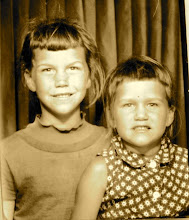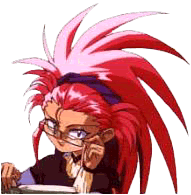 Woke this morning, realized Thursday was upon me, and started reeling off ideas for Thursday Thirteen. I needed quick and dirty. I must grade mid term exams today and post grades. No time to waste. Not that this is a waste. Oh my goodness, no! I did not scratch the surface here, and did write off the top of my head. As you might note, I started to lecture with #1 and gave up the ghost for most of the list. I'd just say... "nuff said," and get on with WRITING!
Woke this morning, realized Thursday was upon me, and started reeling off ideas for Thursday Thirteen. I needed quick and dirty. I must grade mid term exams today and post grades. No time to waste. Not that this is a waste. Oh my goodness, no! I did not scratch the surface here, and did write off the top of my head. As you might note, I started to lecture with #1 and gave up the ghost for most of the list. I'd just say... "nuff said," and get on with WRITING!1. Read -- I say read everything. Others say you will write what you read, or you should read what you want to write. I'm for reading a broad spectrum of work. Even though I prefer fiction, non-fiction provides balance and food for thought. Curiosity is the gateway to the imagination. Read the classics. (I'm not going to give you a list. You said, "Thank goodness" then, didn't you?) And you said, "Oh, poop!" or "Poppycock." You may not like these works. You may rebel against the label "classics." You may disagree that these works are even "good." But you have no room to talk if you haven't read them. Every single bit of writing that you read, good and bad, contributes to your writing. You might hate reading Moby Dick (trust me, it's not my favorite...read that sucker 3 times... shudder) AND (yes, no "but" here... remember you can hold two disagreeing thoughts at the same time) AND learn a great deal about writing by reading it. Think about a character so driven by obsession that he or she is willing to take the whole world down to hell to achieve his or her aims. READ! Read for diction, love of language, turn of phrase, plotting, characterization, comedy...... learn by doing. When words come through your eyes into your heart, they can flow out of your pen.
2. Grammar - learn your language. Yeah, yeah, yeah, you hated this in school. Get over yourself (sorry, cliche?). If you hate grammar, for the life of me, I cannot understand why you've chosen to write. Knowledge of grammar is so basic that I shouldn't even have to list it. Period. You're not taking a test, you're writing a book. Embrace the rules; THEN you can break them... or not.
3. Stop using "there." Remove when notice; learn to write without using "there" in the first place. . Just do it. Never use "there" again. Okay... maybe in dialogue. I'm not going to explain this rule. Trust me.
4. Question every use of "it." Remember the word "antecedent?" No? Go back to #2.
5. Remove redundancy. That would be saying the same thing twice. Not just words but ideas or plot points. When you've strung two or three adjectives together, cut until you have the exact word you want. One word will suffice in most situations.
6. Question every use of "had." Use "find/replace." Read every sentence. Verb tense shifts? Don't know what that means? #2
7. About adverbs. Adverbs are getting a bad rap. You do NOT have to eschew adverbs or deny their existence. Remove or question these: really, very, just, even, well. These can be insidious and add nothing to your writing. Do not run amok slashing every LY word. Be conscious during the revision and editing phase. Be conscious all the time. Especially when you drive. (thought I'd see if you were still reading)
8. Remove cliches. I mean all. Do not use phrases, descriptions, metaphors, similes, or plot points that stink of cliche.
9. Word order. Remember that the point you want to emphasize should be placed at the end of the phrase, sentence, paragraph, chapter, or essay. Train your eye to see this during revisions. By now you're thinking, "Writing is hard work." Um. Duh.
10. Triage Revisions. Do not start at page one and keep re-reading your work. When you think you are finished, wait a period of time. Then, visualize the scenes of your writing. If you can't visualize anything about your story after a time out, you're in big trouble. If you can visualize, consider the strongest scene. Consider the weakest scene. Go to these scenes first and begin to craft revisions. This idea is from Sol Stein's, STEIN ON WRITING. If you want to read an excellent book, read his.
11. Read your work aloud.
12. Use a dictionary and a thesaurus. ALL. THE. TIME. Spelling does count. Word choice and use does count.
13. Write every day. If you truly want to write well, you must WRITE. Every time you write, even if it is a note to your husband, or a card to your mother -- consider every word. Pay attention to your writing. Use every occasion to write as an opportunity to learn your craft. Don't fool yourself that writing is a gift and only certain people have been given this creative present. Don't fool yourself that creativity cannot be taught. Be present for yourself. Practice makes perfect.








3 comments:
Great list!
However, I have to think, perhaps, that reading those papers brought some of these to mind. Yes? No? Not telling?
Ah, well, it was only conjecture. :-)
All hail the wise one! And if I might add one more? Celebrate all the victories, no matter how small. Finished a chapter? Celebrate! Finished a manuscript? Celebrate! Sent out a query? Celebrate! Got a rejection? Celebrate (yes, even those!) Writing is a journey of ten thousand steps: if you wait til you reach the end to celebrate your success, you may never get there.
Oh, that was good. But, please, please don't tell me I have to read Moby Dick...
Post a Comment